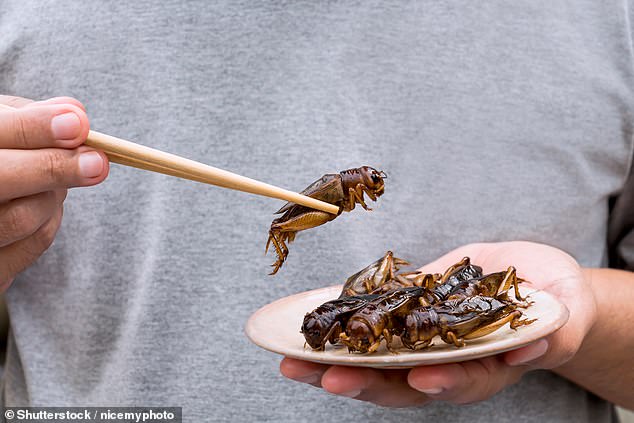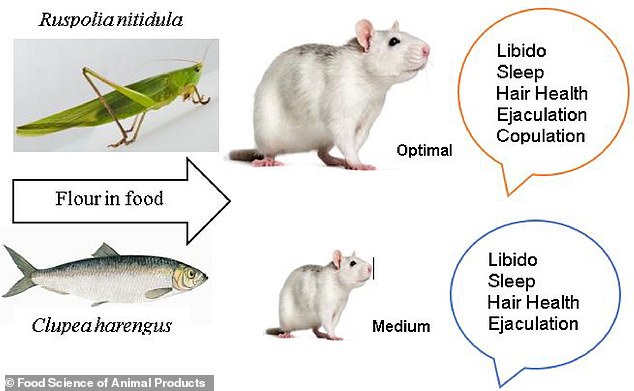Unexpected food can increase your sex drive, but you need a strong stomach to try it
From oysters to chocolate, many foods are often touted as powerful aphrodisiacs.
But if you really want to boost your libido, new research suggests an unusual alternative.
Research has shown that eating grasshoppers (Ruspolia nitidula) can improve your sexual desire.
In addition, this dietary change may also improve sleep, hair quality and overall health, according to researchers from Dschang University.
“Our findings highlight the significant potential of edible insects such as Ruspolia nitidula as alternative protein sources,” said Dr Ngnaniyyi Abdoul, who led the study.
From oysters to chocolate, many foods are regularly touted as powerful aphrodisiacs. But if you really want to boost your libido, a new study suggests an unusual alternative (stock image)
There are approximately 2,000 edible insects worldwide, many of which are high in protein, such as black soldier fly larvae, mealworms, crickets and grasshoppers.
In their new study, the researchers wanted to gain insight into the health benefits of including edible insects in our diet.
The team recruited 216 rats, which were fed either fish or Ruspolia nitidula grasshoppers for a period of 12 weeks.
During the study, the researchers monitored the rats’ libido, sleep, hair growth, and general health.
The results showed that the rats that ate grasshoppers had a higher libido than the rats that ate fish. For example, they had more sexual intercourse and more ejaculations.

Research has shown that eating grasshoppers (Ruspolia nitidula) can improve your sexual desire (stock image)
Sleep quality also improved: rats slept longer and were most restful when given locusts.
The quality of the hair of the rats that ate locusts was ‘significantly better’: 94.58 percent of the hair was in optimal condition, compared to only 5.55 percent in the rats that ate fish.
Although this study only focused on rats, the researchers say the same findings could apply to humans as well.
‘The locust meal not only meets nutritional needs but also provides significant health benefits including improved libido, better sleep and improved hair quality, with far-reaching implications for both animal and human diets,’ added Dr Abdoul.
Unfortunately, research shows that some people need convincing to include insects in their diet.
A 2022 survey found that nearly 70 percent of people are unwilling to adopt a “bushtucker trial diet” – which includes insects such as mealworms – to save the planet.

The team recruited 216 rats, which were fed either fish or Ruspolia nitidula grasshoppers for 12 weeks. Throughout the study, researchers monitored the rats’ libido, sleep, hair growth, and overall health.
A survey by the Food Standards Agency (FSA) found that 67 percent of respondents said ‘there was nothing that would persuade them to eat edible insects’, with 13 percent saying they could be persuaded if they knew they were safe to eat, 11 percent saying they would ‘look tasty’ and 37 percent saying they would be willing to eat ground insects.
According to Professor Robin May, the FSA’s chief scientific adviser, the findings show how much consumers care about safe and accurate food regulation.
“Our priority is to protect consumer interests by ensuring food is safe and what it says it is through a robust scientific process. We recognise the potential of alternative proteins to improve dietary health and as part of a sustainable food system,” he said.
‘This important research highlights that many consumers will consider trying alternative proteins, but they will only do so if they are confident that these products are safe and well regulated.
‘That’s why we’re working closely with companies and trade bodies to ensure they use the FSA’s existing regulatory framework effectively, so consumers can benefit from innovative food products while having complete confidence that they are safe.’
